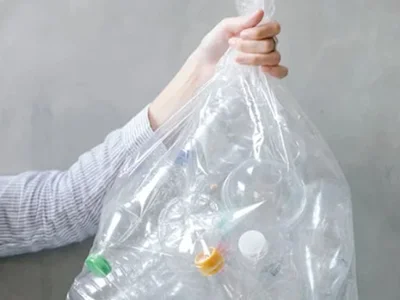The Of Reclaim Waste
Table of ContentsThe Main Principles Of Reclaim Waste Fascination About Reclaim Waste8 Simple Techniques For Reclaim WasteGetting My Reclaim Waste To WorkNot known Facts About Reclaim Waste
Domestic sewage waste refers to the waste and products from a residential septic container. The proper administration and disposal of residential sewer waste call for liquid waste to be moved to a sewage treatment plant where the correct techniques and devices are applied to cleanse and dispose of waste.
Commercial waste frequently consists of possible dangers, such as combustible products or a mixture of fluid and strong waste products, and needs an advanced and detailed disposal process. The disposal of commercial waste usually includes the filtration of waste before transport to make sure secure and proper disposal. Hazardous waste is created from by-products and overflow of commercial procedures and manufacturing.
This type of waste can not utilize the same sewage administration transportation or procedures as septic or business liquids. The commercial waste management procedure needs the examination and screening of liquid waste prior to it goes through the disposal procedure (liquid waste removal melbourne). Overflow waste is the fluid waste that originates from runoff and excess stormwater in highly booming areas or cities
Runoff waste can cause contamination and flooding if not taken care of effectively. Guaranteeing correct waste monitoring can protect against calamities and lower ecological harm.
Top Guidelines Of Reclaim Waste
Get in touch with PROS Services today to learn more about our waste administration and disposal services and the appropriate means to look after the fluid waste you produce.
(https://www.storeboard.com/reclaimwaste2)Do you know what takes place to your water when you draw the plug, flush the bathroom or drain the cleaning device? No? Well, it's worth recognizing. This so-called 'wastewater' is not just an important resource however, after treatment, will certainly be launched to our land, waterways or the sea. Used water from toilets, showers, bathrooms, kitchen sinks, laundries and commercial processes is called wastewater.

water made use of to cool equipment or clean plant and tools). Stormwater, a form of wastewater, is drainage that streams from farming and urban locations such as roofings, parks, gardens, roadways, paths and gutters right into stormwater drains pipes, after rain. Stormwater flows untreated directly to regional creeks or rivers, eventually getting to the sea.
The smart Trick of Reclaim Waste That Nobody is Discussing
In Queensland, most wastewater is treated at sewer treatment plants. Wastewater is transported from domestic or industrial sites with a system of drains and pump stations, referred to as sewage reticulation, to a sewer therapy plant. City governments develop, keep and run most sewer therapy plants. Operators are accredited under the Environmental Security Act 1994 to discharge treated wastewater at an appropriate ecological criterion right into waterways.
The Department of Natural Resources advises city governments regarding handling, operating and keeping sewage systems and treatment plants. In unsewered locations, city governments might call for owners to mount private or home sewage treatment systems to deal with residential wastewater from bathrooms, kitchen areas, shower rooms and laundries. The Division of Natural Resources authorizes the usage of home systems when they are proven to be reliable.
In some new subdivisions, treatment of some stormwater to get rid of trash, sand and crushed rock has started utilizing gross toxin traps. Wastewater therapy happens in 4 stages: Gets rid of solid matter.
Utilizes little living microorganisms knows as micro-organisms to break down and eliminate staying liquified wastes and great particles. Micro-organisms and wastes are integrated in the sludge.
Excitement About Reclaim Waste
Nutrient removal is not available whatsoever sewage treatment plants due to the fact that it requires pricey specialized tools. It is coming to be extra usual in Queensland. Clear fluid effluent produced after treatment may still include disease-causing micro-organisms. If Continued this effluent is released into rivers such as rivers or the sea, the micro-organisms will ultimately die out.

This usually implies wastewater needs to be dealt with or pollutants removed prior to it can be released to waterways. The majority of wastewater moves into the sewerage system. Under the Act, city governments administer approvals and permits for ecologically relevant tasks (ERAs) entailing wastewater launches that might have a regional effect. The division carries out authorizations and permits to Ages including wastewater launches that might have a regional or statewide impact.
Rumored Buzz on Reclaim Waste
Tracking offers accurate info regarding water high quality and can verify that licence conditions are being satisfied. The info acquired via tracking offers the basis for making water quality choices.